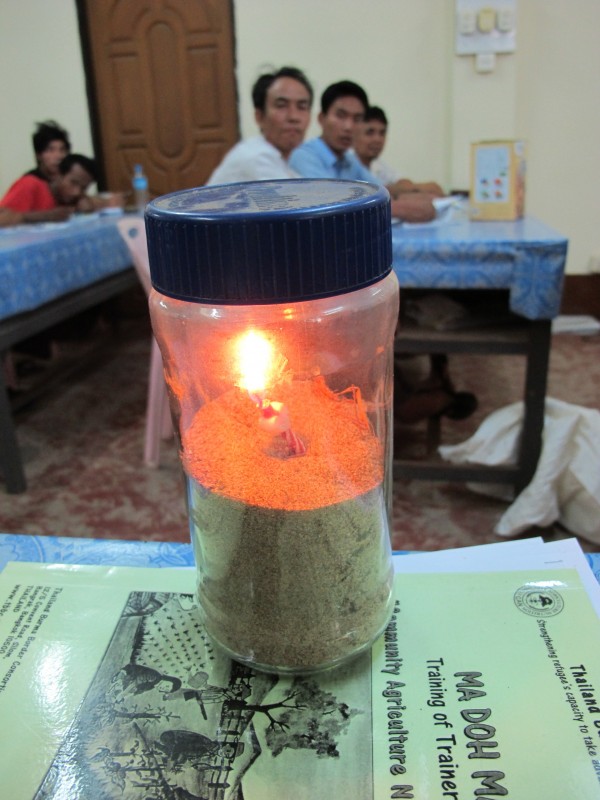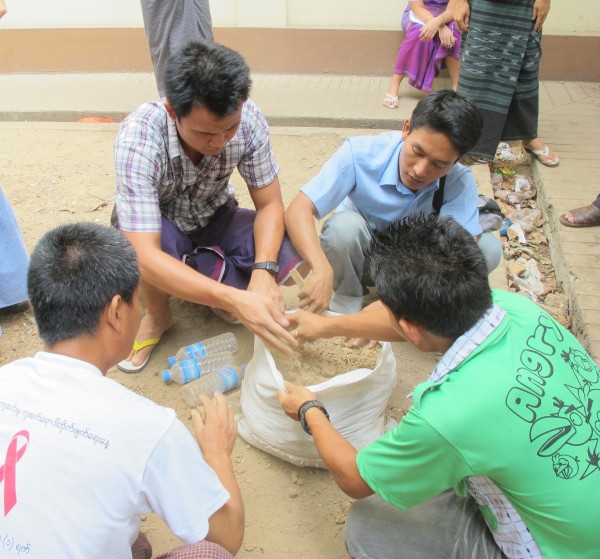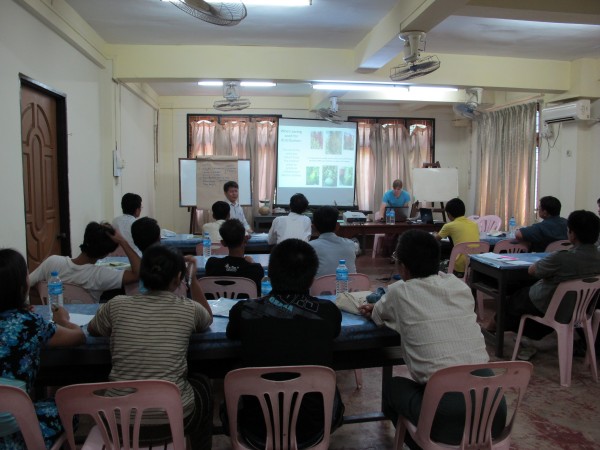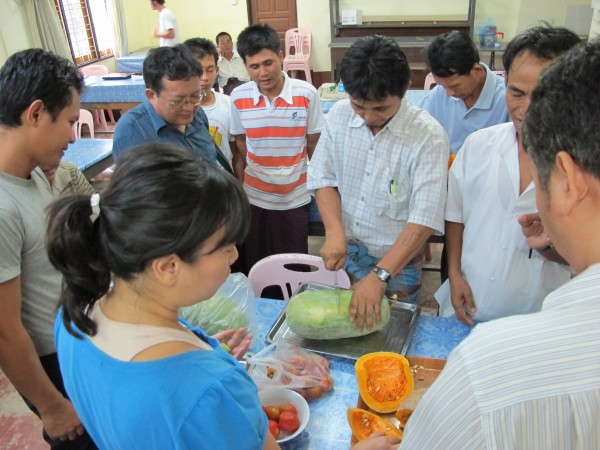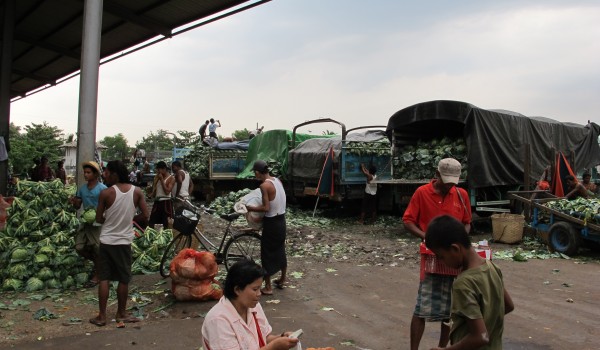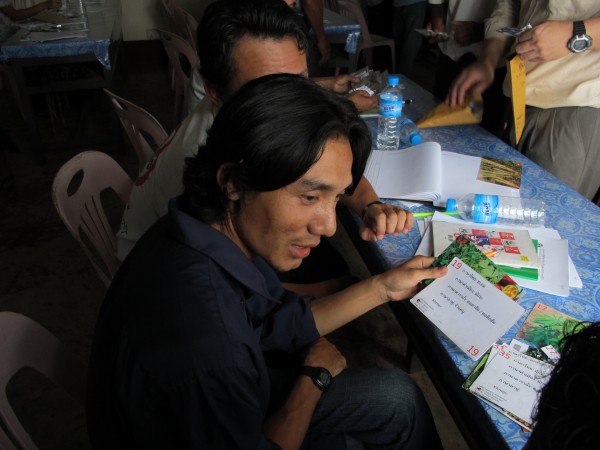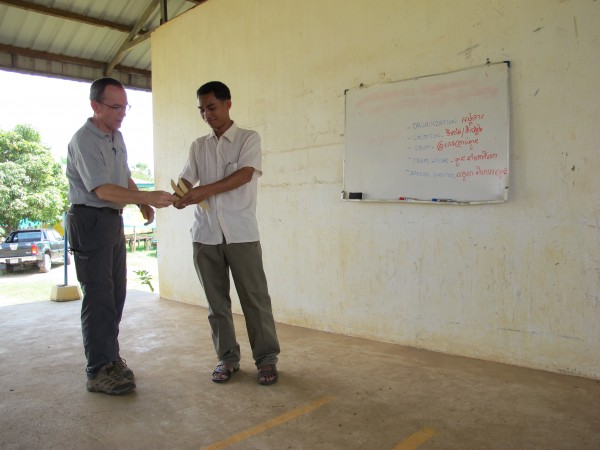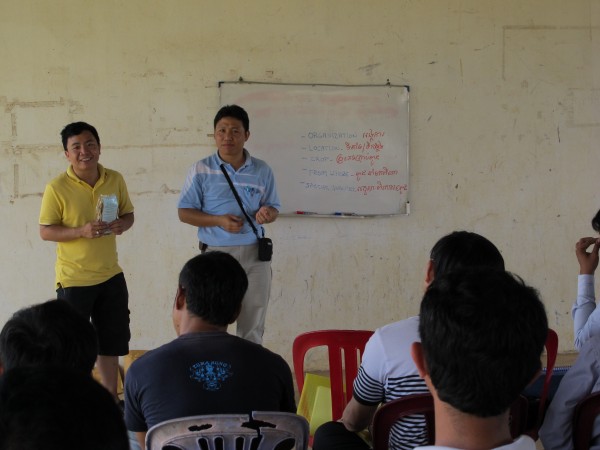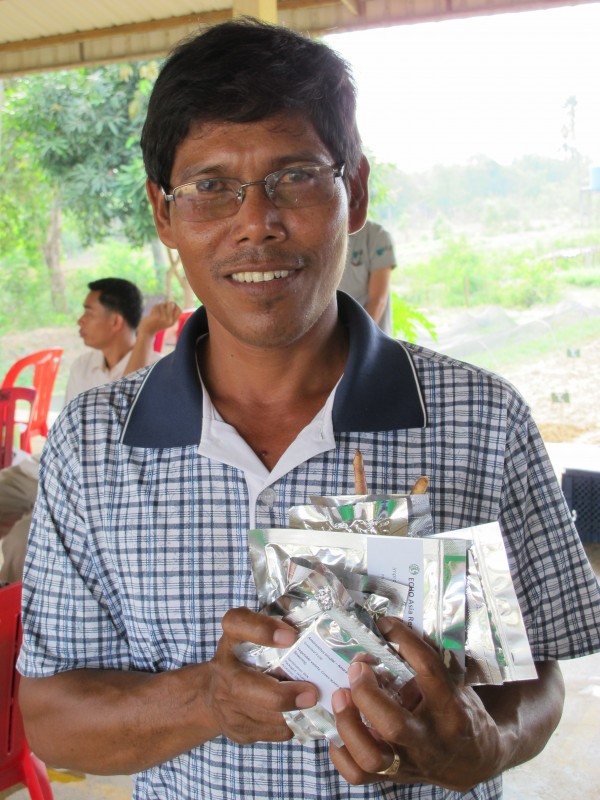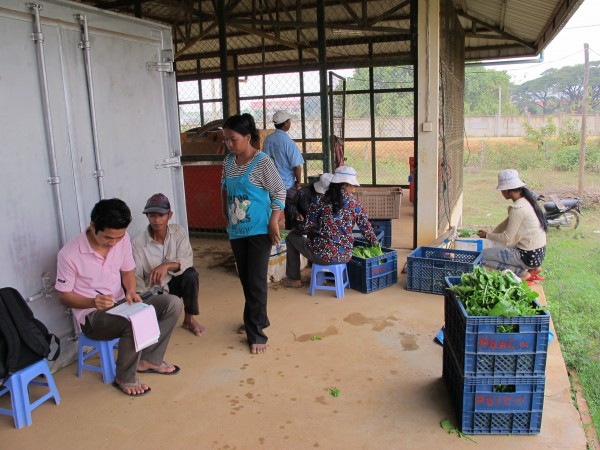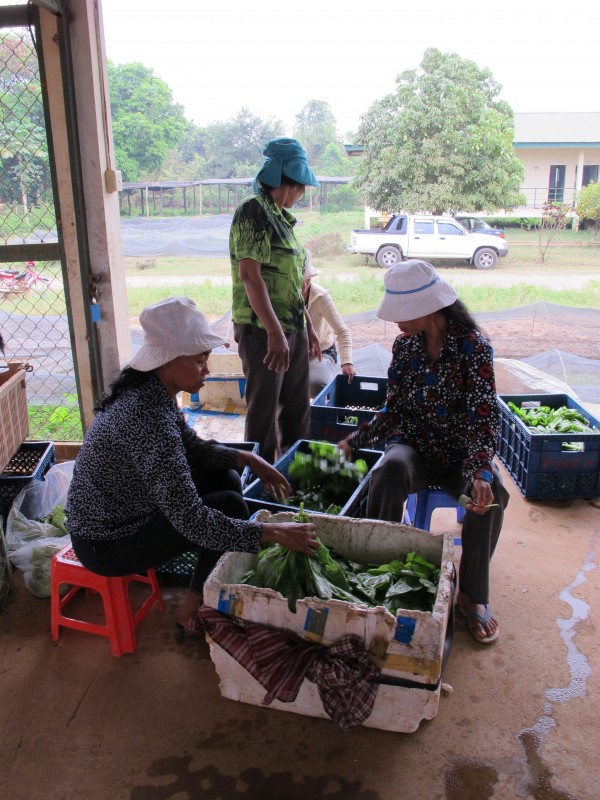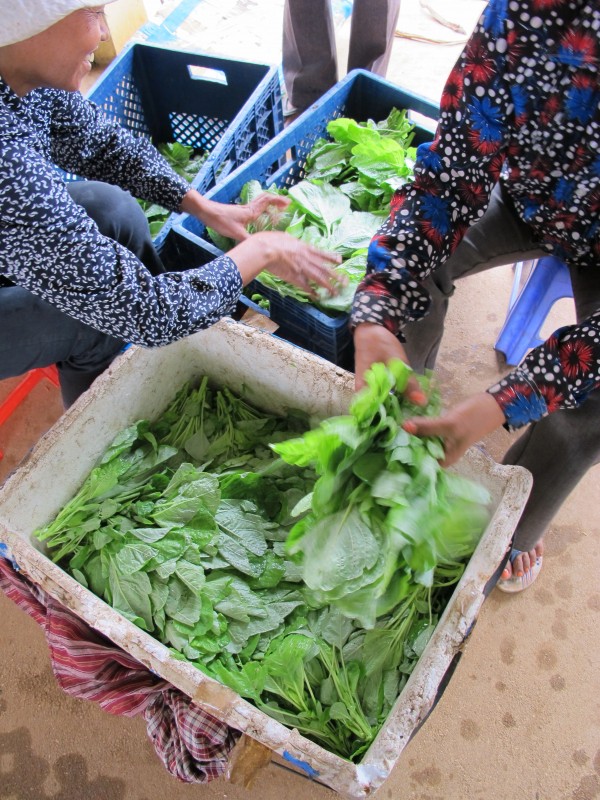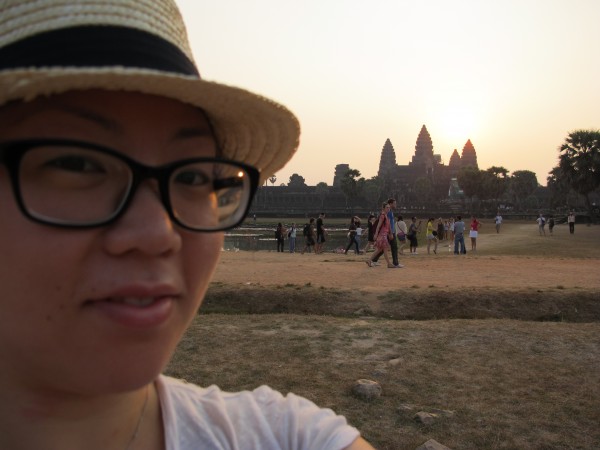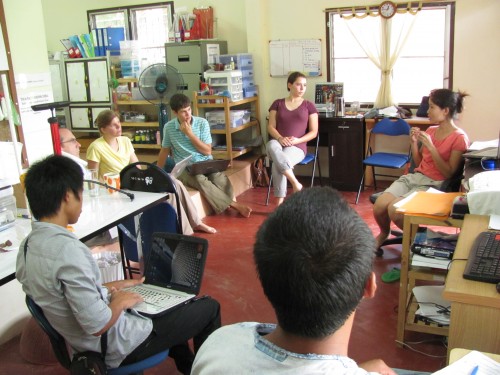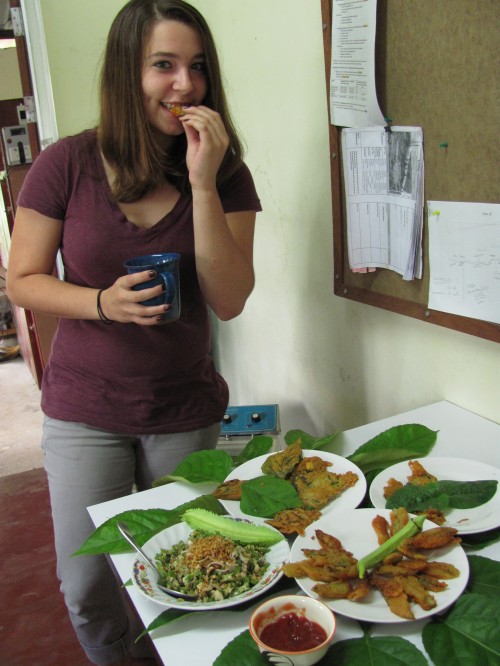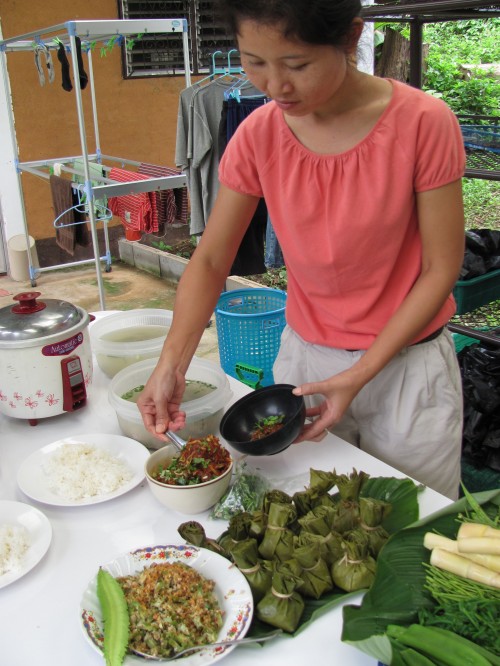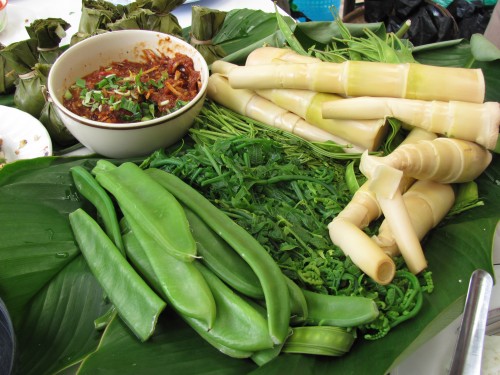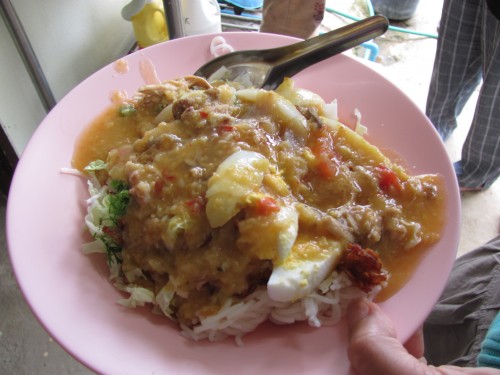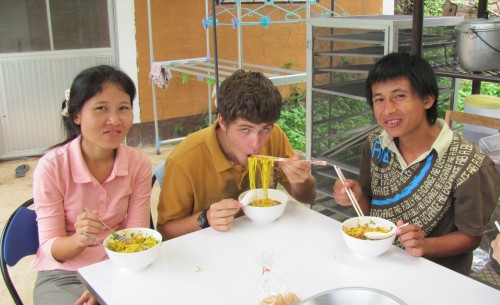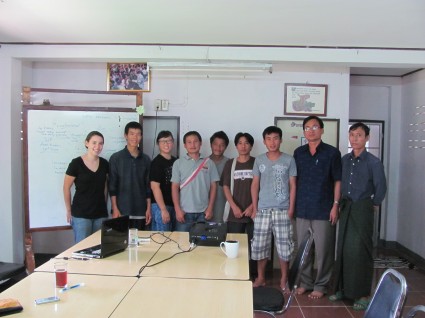In April, troche I took a few friends to visit Chiang Mai’s first community-supported agriculture (CSA) cooperative in the Mae Tha valley, herbal south of the city. Â In response to ill health from using chemicals on the farm, neuropathist a few families in this farming community turned to natural food production methods. Â Their kids, who were forging careers in the city, decided to quit their jobs and band together to start a CSA, distributing organic food boxes to customers in Chiang Mai. Â Mae Tha is a unique community that believes in sustainable practices, from raising chickens to seed saving, and shares their knowledge through homestays, workshops and community events. Â Worth a visit.
Read more about their story here, in Robyn and Dave’s article on ZesterDaily. Â Read more about Mae Tha on Fair Earth Farm’s site.
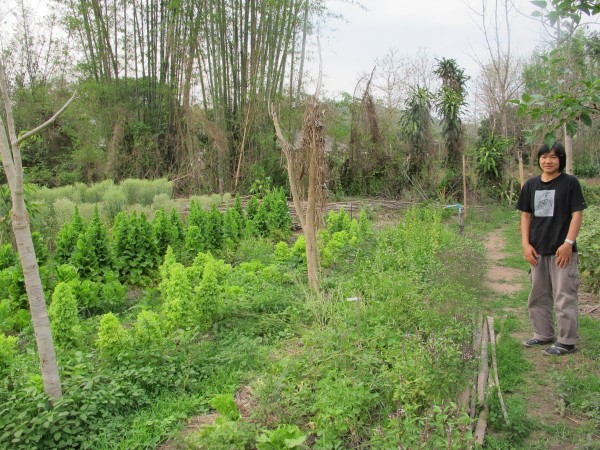
Bui runs the year-old seed production operation - she's also former classmates with our co-worker Lue 🙂

Aun is the CSA's spokesperson (unfortunately only his back is shown here!); in front of the organic vegetable plots he manages at his family's farm



